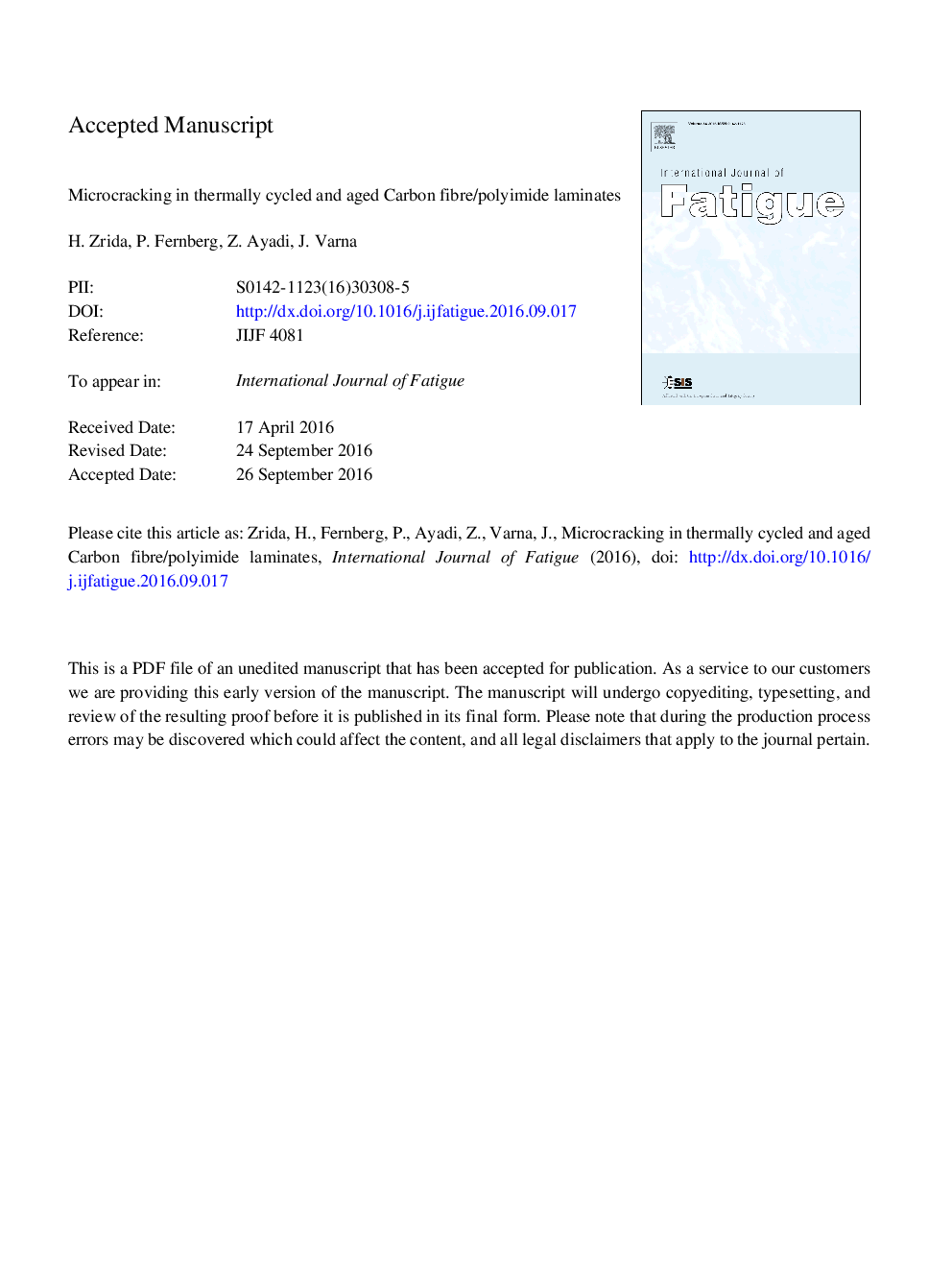| Article ID | Journal | Published Year | Pages | File Type |
|---|---|---|---|---|
| 5015206 | International Journal of Fatigue | 2017 | 32 Pages |
Abstract
Carbon fibre T650 8-harness satin weave fabric composites with thermosetting polyimide resin designed for high service temperatures are solidified at 340 °C. High thermal stresses develop after cooling down to room temperature, which lead to multiple cracking in bundles of the studied quasi-isotropic composite. The composites are subjected to two thermal cycling ramps and the increase of crack density in each bundle is quantified. Comparison of two ramps with the same lowest temperature shows that the highest temperature in the cycle has a significant effect on thermal fatigue resistance. During thermal aging tests at 288 °C the mechanical properties are degrading with time and the crack density after certain aging time is measured. Aging and fatigue effects are separately analysed showing that part of the cracking in thermal cycling tests is related to material aging during the high temperature part of the cycle. Numerical edge stress analysis and fracture mechanics are used to explain observations. The 3-D finite element edge stress analysis reveals that there is large edge effect that induces a large difference in the damage state between the different layers on the edge. The linear elastic fracture mechanics explains the higher initiated and propagated crack density in the surface layers comparing to the inner layers.
Related Topics
Physical Sciences and Engineering
Engineering
Mechanical Engineering
Authors
H. Zrida, P. Fernberg, Z. Ayadi, J. Varna,
